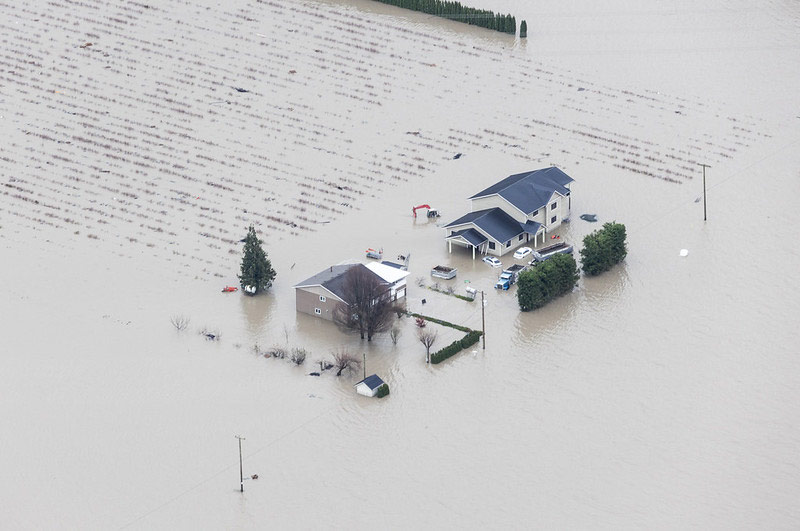This week’s B.C. budget provides $1 billion in new climate spending over three years, but falls short of what’s needed to reduce the impacts of climate change, say experts.
“B.C. is struggling to meet its climate targets, and all the while is logging old growth, subsidizing fossil fuels and generally not tackling the cause of climate change nearly aggressively enough,” said Sven Biggs, Canadian oil and gas program director with Stand.earth.
Without reducing greenhouse gas emissions, the climate crisis will continue to get much, much worse, Biggs said.
Peter McCartney, the Wilderness Committee’s climate campaigner, said there are things to celebrate in the 2022 budget. This budget suggests the province is, for the first time, recognizing the extent of the climate and biodiversity crisis we’re in, he said.
“But they’re playing catchup, and there’s not time to waste.”
Tom-Pierre Frappé-Sénéclauze, B.C. regional director for the Pembina Institute think tank, said the budget shows the province continues to be a climate leader in Canada. But much more public investment is needed to help the province transition to a low-carbon economy, he said.
Here’s the top six things these experts say they’re judging the budget on, using a climate change lens.
Public transit
Transportation makes up 40 per cent of B.C.’s total emissions — which is the single largest source, the budget said.
Public transit should be made more of a priority than private vehicles, McCartney said. That means building quality transit in places like Chilliwack, the Okanagan and Squamish, not just in Vancouver.
The budget said $8 billion over three years will be spent on roads and transportation infrastructure — but just $1.97 billion of that will go towards public transit, with $921 million earmarked for the Broadway subway line in Vancouver, and $1.1 billion for transit infrastructure across the province.
Local governments will be able to apply for grants from a $30-million fund to build active transportation routes, like walking pathways and bike lanes.
Centre for Innovation and Clean Energy
B.C. has partnered with Shell Canada to create a new centre to decarbonize the economy and scale up clean energy.
The centre will focus on carbon capture, low-carbon hydrogen, biofuels and synthetic fuel, renewable natural gas and batteries, a press release from July said.
But McCartney doesn’t see this as a climate win.
“It’s incredibly frustrating how government is partnering with one of the most polluting companies in the world for carbon capture and research and development for things that greenwash the oil and gas industry,” McCartney said.
The 2022 budget didn't include any funding for the Centre for Clean Energy, the Ministry for Environment and Climate Change Strategy said in an email.
But $310 million is going towards programs that have similar goals to the centre.
In its email the ministry said $285 million will go towards the CleanBC Program for Industry, which allows companies to get a carbon tax rebate if they reduce emissions. The remainder will go to “measures that will identify ways to reduce methane emissions, develop a provincewide approach to carbon capture, utilization and storage; and make new industrial operations ‘net-zero ready,”’ the email said.
Two per cent of GDP earmarked for climate change
McCartney said B.C. should spend at least two per cent of its GDP fighting climate change. In 2020 B.C.’s GDP was $245 billion.
That means B.C. should be spending $4.9 billion fighting climate change, McCartney said.
The budget said it will spend $1 billion to continue CleanBC measures, which is the province’s climate response plan.
Retrofit investment
To transition B.C. to be zero-carbon by 2050 we need to start retrofitting around five per cent of the province’s commercial and residential buildings every year, Frappé-Sénéclauze said.
To undertake this B.C. needs to spend $1.6 billion every year, he said, with half coming from the federal government and one quarter each from the province and utilities.
Instead the budget said $43 million over three years would be spent to encourage energy retrofits in buildings.
Frappé-Sénéclauze said it was good to see Better Homes BC and Better Buildings BC programs extended. These programs offer heat pump incentives and funding to develop high efficiency standards for space and water heating.
Spending more on reducing climate change than adapting to it
Stand.earth’s Biggs said one key takeaway is that the government is spending more money helping communities deal with the impacts of climate change than it is to reduce climate change.
The budget commits $1 billion to CleanBC, but $2.15 billion over three years to help communities hit hard by wildfires and floods. This includes $400 million to cover known costs, like removing debris, and an additional $1.15 billion over three years for recovery contingencies. Just over $600 million over three years will help with other climate adaptation measures across the province, like wildfire prevention.
“If we don’t deal with the sources of climate change, like forestry or the oil and gas industry, the problem is going to continue to grow and the cost is going to exponentially grow too,” Biggs said.
Frappé-Sénéclauze said it’s critical to reduce carbon emissions, but B.C. needs to invest in adaptation at the same time.
Encouraging consumers to shop green
The 2022 budget is a “smart use of tax policy to guide customers towards clean choices," Frappé-Sénéclauze said.
It scrapped PST on things like electric heat pumps and used electric vehicles, and increased the PST to 12 per cent from seven on natural gas equipment like gas-burning fireplaces and boilers. Biggs noted natural gas itself has been PST exempt since 2019.
The tax changes make it easier for clean options to compete in the marketplace, Frappé-Sénéclauze said.
One thing all experts were hoping to see included in the budget was an update on the B.C. oil and gas royalty review. Biggs said the Ministry of Energy, Mines and Low-Carbon Innovation told him the review would be finished in time for the budget, but now says it’s aiming for early spring.
* Story updated on March 3 at 1:34 p.m. to correct details on distribution of funds in the budget. ![]()
Read more: BC Politics, Environment
















Tyee Commenting Guidelines
Comments that violate guidelines risk being deleted, and violations may result in a temporary or permanent user ban. Maintain the spirit of good conversation to stay in the discussion.
*Please note The Tyee is not a forum for spreading misinformation about COVID-19, denying its existence or minimizing its risk to public health.
Do:
Do not: